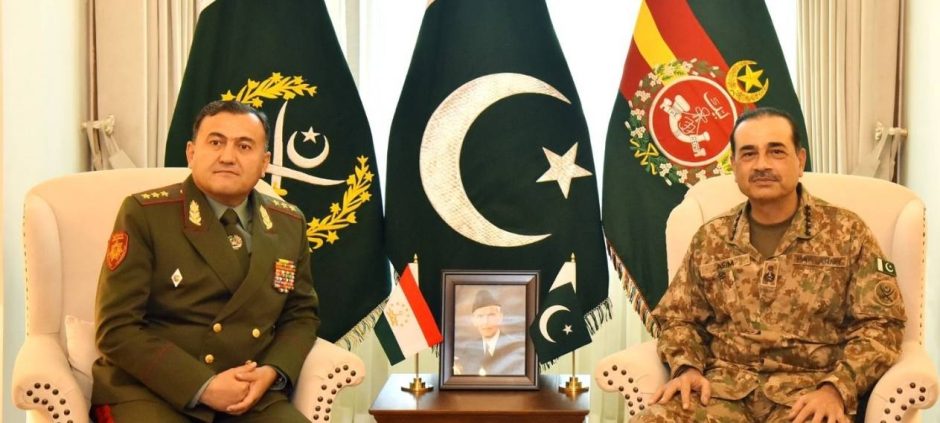Pakistan and Tajikistan have agreed to deepen their defense and security partnership during a high-level meeting in Rawalpindi. Tajikistan’s Defense Minister, Col Gen Sabirzadeh Imam Ali Abdul Rahim, met Pakistan’s Army Chief, Field Marshal Syed Asim Munir, at the General Headquarters (GHQ).
During the meeting, both sides discussed key matters of mutual interest. They talked about regional security challenges and ongoing defense cooperation. Officials from both countries said the talks were productive and showed a shared commitment to stronger ties.
According to the Inter-Services Public Relations (ISPR), the two leaders reaffirmed their desire to expand military collaboration. The focus areas included training, counterterrorism, and regional security. Pakistan said it values close cooperation with Tajikistan, especially at a time when regional security remains a major concern.
Col Gen Sabirzadeh Imam Ali Abdul Rahim praised the Pakistan Army for its professional standards. He also appreciated its role in promoting peace and stability across the region. The Tajik minister said his country looks forward to stronger cooperation that benefits both nations.
Field Marshal Asim Munir highlighted the importance of joint efforts for long-term stability and prosperity in the region. He noted that Pakistan remains committed to working with friendly countries to improve security. He added that both Pakistan and Tajikistan can benefit from deeper military coordination and shared training programs.
The meeting also reflected the growing defense relationship between the two nations. Pakistan and Tajikistan have worked together on several security matters in the past, and both countries continue to support efforts for peace in the broader Central and South Asian region.
In other related news also read Pakistan, Turkiye Reaffirm Defence Cooperation in High-Level PAF Meeting
The visit of the Tajik defense minister is seen as an important step toward expanding defense ties. It shows both countries’ commitment to building a safer and more stable region through cooperation, dialogue, and continued military engagement.











